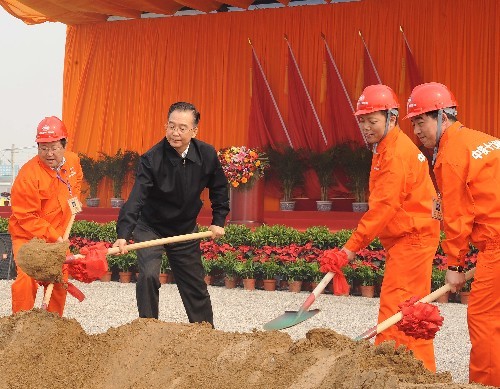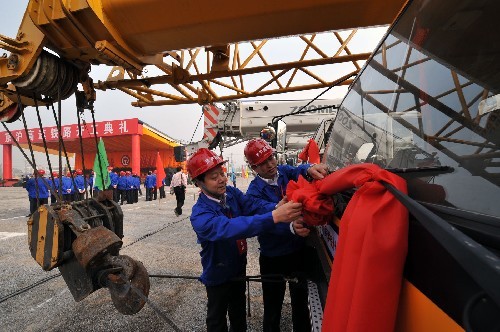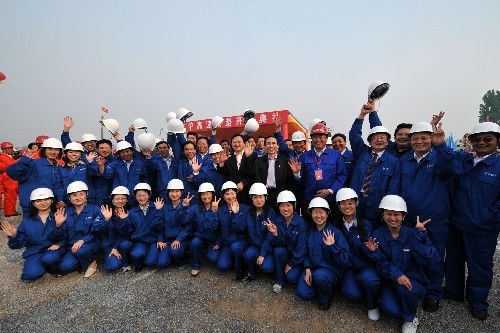
Premier Wen Jiabao announced the beginning of construction of the Beijing-Shanghai high-speed railway this morning, a link that is expected to trim nearly seven hours off travel time between the two cities.
The high-speed rail link, scheduled for completion in five years, will cut traveling time between Shanghai and the capital from 12 hours to less than five, China Central Television Station reported today.
The 220.94-billion-yuan (US$31.6 billion) project, which has been under preparation for more than a decade, is the biggest construction investment since 1949, the report said.
Trains will travel at up to 350 kilometers per hour on the 1,318-kilometer railway. Twenty-one stations will be built along the route.

The link is expected to carry 160 million passengers each year, which doubles present train capacity between Shanghai and Beijing, the report said.
The design life of the railway is expected to be 100 years.
The Shanghai terminal of the new railway will be built at the Hongqiao Transport Hub. The area will serve as a transfer station for Hongqiao International Airport, a Maglev station, at least three Metro stations and several bus stations.
Ticket prices are expected to range from 600 yuan to 800 yuan on the high-speed link, the report said, adding that it will fundamentally ease China's much-pressured rail network, especially during festival holidays.
China set up a company to lead construction of the Shanghai-Beijing railway on December 27, according to previous reports.

The company's shareholders include the Ministry of Railways, China Railway Construction Investment Company, the National Council for Social Security Fund, Ping An Asset Management Co Ltd and Shanghai Shentie Investment Co.
The Ministry of Railways will fund 78.9 percent of the project while the others investors will provide the remaining 21.1 percent.
Meanwhile, the ministry said a total of 23.3 billion yuan will be paid in compensation to relocate residents in eight provinces and three municipalities along the route.
Local governments will pay the relocation compensation in exchange for a stake in the country's most important railway project this year.
The project has attracted interest from some of the world's largest railway technology companies including France's Alstom, Canada's Bombardier, Japan's Kawasaki Heavy Industries and Germany's Siemens.
(Shanghai Daily April 18, 2008)